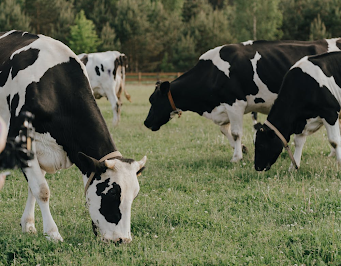
Seeking to evolve your agricultural practices into sustainable food systems? As global climate change and environmental concerns rise, the urgency for sustainable solutions becomes paramount. Agroecology presents a viable avenue, emphasizing ethical and alternative methods in food production and system sustainability.
With the increasing global climate change and environmental degradation concerns, the need for sustainable living has taken centre stage. In this situation, agroecology emerges as a beacon of hope for building sustainable food systems. This holistic approach encompasses everything from alternative food systems to the ethics of food production.
How agroecology is shaping sustainable agriculture?
Agroecology is a multidisciplinary approach that combines ecology, culture, economics, and society to create productive and sustainable farming systems. Using ecological principles, agroecological approaches promote biodiversity, organic farming, and efficient pest management.
Agroecology utilizes efficient farm management strategies to combat the negative impacts of climate change on agricultural fields. It creates opportunities in agriculture from production to consumption, promoting eco-friendly agricultural systems. Agroecology is shaping sustainable agriculture by:
- Reducing crop losses
- Improving food quality
- Reducing food waste
These initiatives contribute to the ongoing efforts to reduce the loss of farm land due to climate change and promote agroecology and sustainable food systems.
How agroecological practices can contribute to minimizing food waste?
Agroecological practices are instrumental in producing healthier crops, conserving natural resources, and promoting long-term food security. These practices can contribute to minimizing food waste, improving food recovery, and cultivating sustainable food systems in several ways. Here’s how agroecological principles play a key role in transforming agricultural systems.
Regenerative farming practices
Agroecological methods, such as cover cropping, crop rotation, and integrated pest management, nurture soil health and encourage the growth of diverse crops. These regenerative farming practices reduce crop losses and minimize food waste by building resilient ecosystems within current food systems. Healthy soils also store more carbon and help combat climate change, making agroecology a double win for sustainable development.
Efficient resource utilization
Agroecological farming is resource-efficient by design. Instead of relying heavily on synthetic fertilizers and pesticides, it harnesses natural processes like nutrient cycling and biological pest control. This approach minimizes unnecessary resource depletion and ensures healthy food production. It leads to reduced waste and environmental impact with sustainable management of farms.
Localized food production
One of the cornerstones of agroecology is the localization of food production. By encouraging the growth of crops suited to the local environment and promoting community-supported agriculture, agroecological systems reduce the energy and waste associated with long-distance transportation. This not only lessens food waste but also supports local economies.
Prorec supports sustainable food systems
At Prorec, we wholeheartedly embrace the principles of agroecology. Our commitment to a sustainable food systems approach is unwavering. We’re proudly at the forefront of supporting agroecological practices to make nutritious and affordable food accessible for farm owners. By working closely with farmers, communities, and organizations, we aim to address food insecurity and build a circular economy.
With innovative practices and efficient resource utilization, agroecology shapes sustainable agriculture and offers a promising solution to minimize food waste. Explore the practical approach to agroecology and sustainable food systems with Prorec and ensure the long-term sustainability of your existing food systems.



